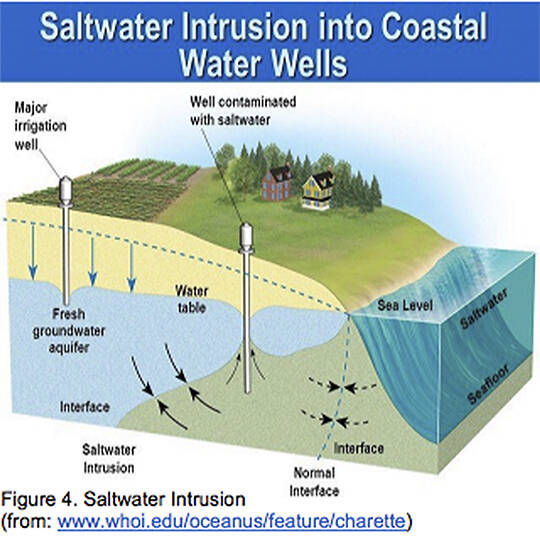Water is known as the gift of life, and Bainbridge Islanders don’t take that lightly. That’s one of the reasons some say any development is all wet.
To help understand the limited capabilities of the island regarding water, the city is developing a Groundwater Management Plan. Roughly 30 residents got an update March 2 on the plan.
Hydrogeologist Maureen Whalen answered questions about the plan, how it will connect with water infrastructure projects and how the city ensures a safe water supply. Whalen shared a presentation on what goes into such a plan, understanding of the groundwater system and how groundwater supplies the island’s drinking water. Groundwater also supports the streams and wetlands.
The city is creating the plan to develop communitywide understanding of groundwater resources, to reduce and adapt to climate change impacts, and to ensure clean and sufficient groundwater. As next steps, city staff will: Fill data gaps in the understanding of how groundwater is used for drinking water and how land use affects groundwater quality; update the water monitoring report; and draft the management plan by fall.
City information says:
The city’s Environmental Technical Advisory Committee consists of volunteers with expertise in environmental issues. The committee prepared this fact sheet to provide a summary of the groundwater system and as a starting point for the Groundwater Management Plan. The plan will provide the framework to responsibly manage groundwater.
According to the U.S. Geological Survey there are five aquifers on BI. Most of the recharge water comes from participation. Combined they are called a sole source aquifer, meaning they privde at least 50% of the drinking water, and there is no alternative source.
Therefore, the committee says, BI should remain self-sufficent with alternative sources not adviseable, such as a pipeline across Agate Pass Bridge or desalination of seawater as intrusion is possible if groundwater is overpumped.
Committee recommendations for the plan include:
•The city should expand its groundwater and surface water monitoring program.
•The city should create aquifer conservation zones to enhance recharge; develop a water conservation program to reduce usage; incentivize and facilitate the reuse of stormwater and grey water; and develop a community-wide education program on the aquifers.
•The city should improve wastewater treatment to tertiary, and recharge groundwater with effluent via surface infiltration instead of discharging it into Puget Sound.
•The city should improve stormwater management to keep more of it on BI for recharging aquifers instead of it running off into Puget Sound.
•The city should coordinate recommendations in the plan with those in the Climate Action Plan.



